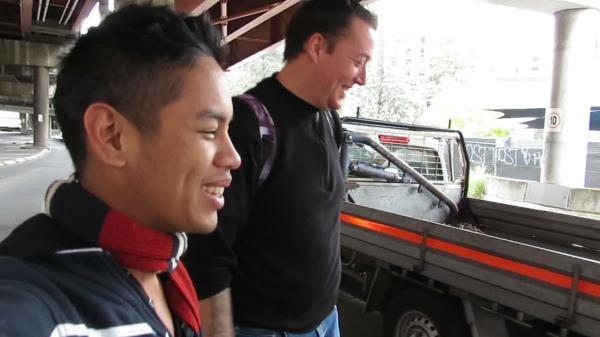
By ANEEKA SIMONIS
AFTER roughing it for 48 hours on the streets, Berwick man Kevin Tangga said the hardest part of his time was trying to escape looks of “arrogance, pity and shame” that followed him wherever he was.
The 20-year-old, who voluntarily left his home and took shelter on the streets of the CBD last week, said the experience, which he planned to document and share on social media, helped him better understand some of the social challenges faced by the homeless community.
In some cases, it’s these damning perceptions by the wider community that serve to further isolate and impoverish those battling homelessness, according to Mr Tangga.
“When I was out there, people gave me different looks … looks of arrogance, pity and shame. I just wanted to say, why are you judging me? I felt judged 24/7 – I had no single moment to myself,” he said.
“For many, they are trying to get rid of an addiction … ice is a huge problem in the homeless community.
“I think because they are getting judged, they can’t escape the stigmas and, on some occasions, they turn to their addictions as an escape … to get away from the reality of it all.
“When people give the (homeless community) sour looks, it perpetuates the cycle … they feel scared and ashamed of themselves, which makes them want to escape more and turn to more drugs or alcohol… pushing them further into addiction.
“I can’t imagine what it would feel like to get those looks from people for a week, a month or a year.”
Mr Tangga, who leads an organisation that feeds the city’s homeless, documented his time on the streets and plans to launch a social media campaign aimed at changing perceptions about homelessness.
Despite knowing many members of Melbourne’s homeless community, even his perceptions of life on the street were changed as he lived the experience himself.
“The biggest realisation I made it that we can’t generalise the homeless into one huge category. There are different subcultures within this community… some are decent, nice people made homeless only through unfortunate circumstances,” he said.
“Every single individual in the community has different needs. One may need housing, another may need healthcare, another may need a place to shower … every single person has their own story and needs.”
Mr Tangga said despite some negative social attitudes toward homelessness, it was comforting to see how others were willing to help.
“I was woken up one morning by a guy. He had six boxes of pizza and offered me some. I was overwhelmed by his generosity,” he said.
“There were times I had gone hungry but realised people were so generous … I feel blessed to live in the city of Melbourne.”
Mr Tangga will launch his social media campaign by the end of the month. It will include interviews with homeless people as well as self reports by Mr Tangga throughout the 48 hour experience.
“I hope it will give people insight into what it is actually like to live on the streets and break the stigmas around it. These are real people that need attention and affection just like everyone else.”






